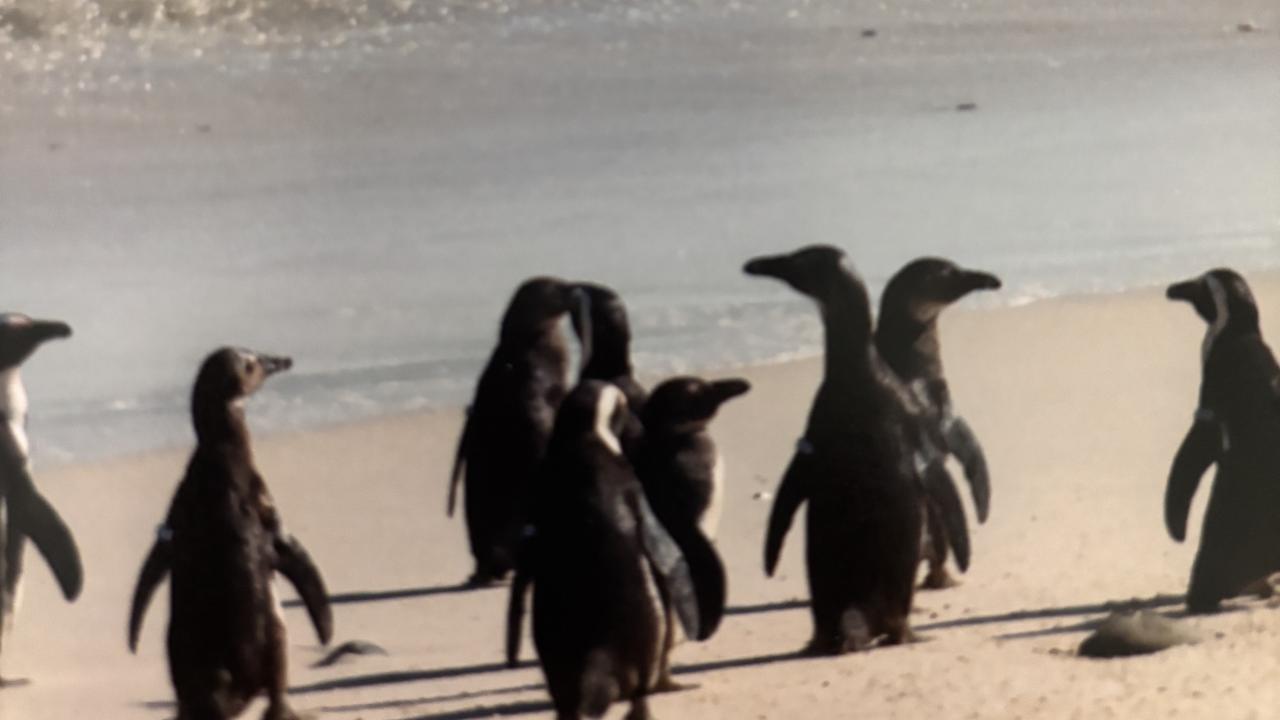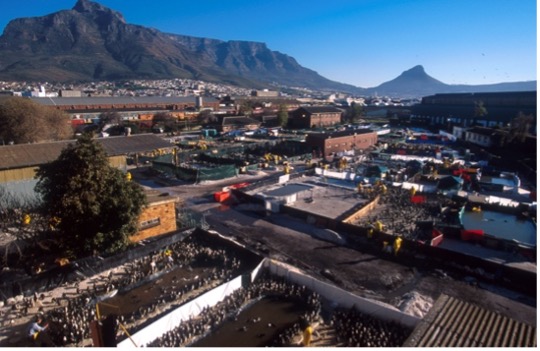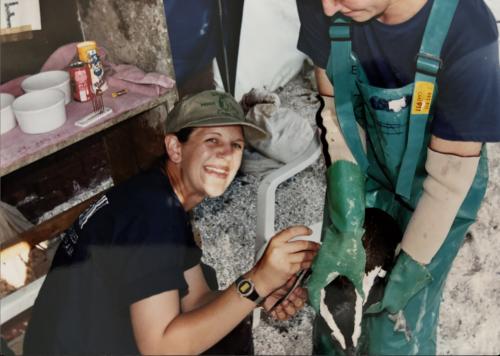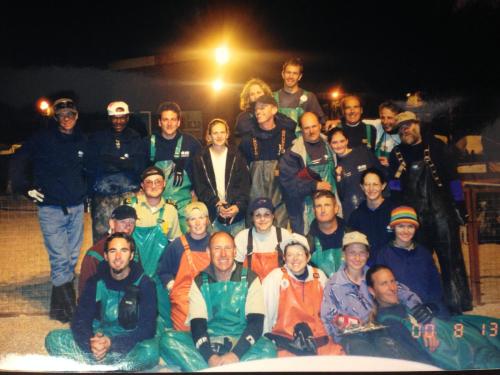
The Spill That Changed Everything – And Not Just for the Penguins!
25 Years Since the MV Treasure Oil Spill | A Story of Rescue, Resilience, and now A Call to Action
Today marks the 25th anniversary of the M/V Treasure oil spill, a disaster that released greater 1,300 tons of oil into the Atlantic Ocean impacting a significant number of African penguins (Speniscus dermusus). Approximately 20,000 oiled penguins were captured and brought into care. Additionally, more than 19,000 additional birds were pre-emptively captured and relocated to an oil-free environment. They were then released to return to their home range, and by that time the spill was cleaned up. The Treasure response is the largest oiled wildlife response to date, and today we are taking a moment to recognize the efforts of the responders and bring awareness to an important issue regarding the future of the African penguin species.

It was heartbreaking to learn about so many animals in need of specialized care. But amidst tragedy came hope. The South African Foundation for the Conservation of Coastal Birds (SANCCOB) and the International Fund for Animal Welfare (IFAW) quickly initiated a response and engaged international organizations, including International Bird Rescue (previously International Bird Rescue Research Center), an Oiled Wildlife Care Network (OWCN) Member Organization, to send responders to assist. Thanks to these collaborative efforts, nearly 90% of the birds in care were released back into the wild – which was a remarkable achievement!
At that time, I was working as a penguin keeper at the New Jersey State Aquarium (now Adventure Aquarium). Early in my career and still finding my path, I hadn’t yet discovered my true calling – until I responded to an oil spill. I thought I was destined to work with marine mammals, but the Treasure response changed everything – or at least, most things!
When I heard that the Association of Zoos and Aquariums (AZA) was organizing support for the response, I found a way to join. I ended up spending nearly a month on the ground in South Africa. As I reflect on that important time in my life, I want to share a few excerpts from my journal:

Day one; “Today I was assigned to free-feed a pen of birds. Each pen houses anywhere from 200-500 penguins. At the aquarium I cared for just 18!
On day two, I joined the “grading “team where we swam a group of penguins for an hour and then we must inspect each feather for wet spots (aka, checking their waterproofing). Today we graded 551 birds. To date, 6,551 birds have been released.
Day four; “The hardest so far. We graded 1,141 birds! It took us 11 hours and left my arms aching! At that point 7,979 birds had been released, with fewer than 10,000 birds in care.”

One of the most magical parts of this experience is that, 25 years later, I am still working alongside some of the same incredible individuals that I met during the Treasure response. That experience launched a lifelong career dedicated to rescuing and protecting wildlife, and I’ve made so many friends along the way.
What’s even more staggering is realizing that during the Treasure response, we saved more penguins than exist in the wild today. In 2000, the wild population of African penguins was estimated at 173,000 penguins. Today, they are listed as Critically Endangered by the IUCN, with fewer than 20,000 mature individuals remaining. To learn more, click here to read the article, the “Plight of the African penguin” written by the International Fund for Animal Welfare (February 2025). If a similar event occurred today, there is a good chance the African penguin would not recover.

The first Effects of Oil on Wildlife (EOW) Conference was held soon after the 1989 Exxon Valdez oil spill and focused on lessons learned and the impact of that response. Similarly, this change in conservation status, as well as the anniversary of the Treasure incident, was a driving factor for the planning of the 14th Effects of Oil on Wildlife Conference. For this conference, Tri-State Bird Rescue & Research has partnered with SANCCOB to host the 14th EOW in Cape Town, South Africa this October.
This event will spotlight three major themes:
1. The 25th Anniversary of the MV Treasure Oil Spill
2. Conservation of African Penguins
3. International Collaboration
These themes not only allow for the spotlight to shine on a seminal moment in oiled wildlife response history and a current ecological crisis, but also highlights the critical work that groups such as the Global Oiled Wildlife Response System (GOWRS) Network – a collaboration of 10 unique organizations, including the Oiled Wildlife Care Network – accomplishes to provide professional oiled wildlife services at an international level. The GOWRS Network continues to meet regularly to advance our mission. Our next in-person meeting will take place in South Africa immediately preceding the conference to both continue our great work as well as allow the international expertise within it to be shared at EOW.
We hope to see you there – to share in the reflections of how far professional oiled wildlife response has come since the Treasure 25 years ago, but also to learn about new threats (and their mitigations) for the future!
~Danene
